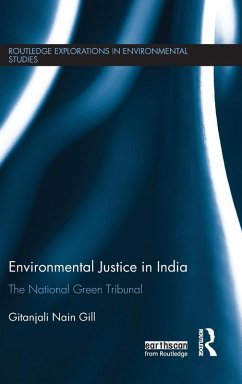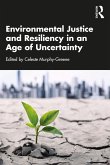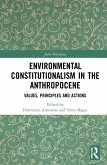Modern environmental regulation and its complex intersection with international law has led many jurisdictions to develop environmental courts or tribunals. Strikingly, the list of jurisdictions that have chosen to do this include numerous developing countries, including Bangladesh, Kenya and Malawi. Indeed, it seems that developing nations have taken the task of capacity-building in environmental law more seriously than many developed nations.
Environmental Justice in India explores the genesis, operation and effectiveness of the Indian National Green Tribunal (NGT). The book has four key objectives. First, to examine the importance of access to justice in environmental matters promoting sustainability and good governance Second, to provide an analytical and critical account of the judicial structures that offer access to environmental justice in India. Third, to analyse the establishment, working practice and effectiveness of the NGT in advancing a distinctively Indian green jurisprudence. Finally, to present and review the success and external challenges faced and overcome by the NGT resulting in growing usage and public respect for the NGT's commitment to environmental protection and the welfare of the most affected people.
Providing an informative analysis of a growing judicial development in India, this book will be of great interest to students and scholars of environmental justice, environmental law, development studies and sustainable development.
Environmental Justice in India explores the genesis, operation and effectiveness of the Indian National Green Tribunal (NGT). The book has four key objectives. First, to examine the importance of access to justice in environmental matters promoting sustainability and good governance Second, to provide an analytical and critical account of the judicial structures that offer access to environmental justice in India. Third, to analyse the establishment, working practice and effectiveness of the NGT in advancing a distinctively Indian green jurisprudence. Finally, to present and review the success and external challenges faced and overcome by the NGT resulting in growing usage and public respect for the NGT's commitment to environmental protection and the welfare of the most affected people.
Providing an informative analysis of a growing judicial development in India, this book will be of great interest to students and scholars of environmental justice, environmental law, development studies and sustainable development.
"Gitanjali Nain Gill brings us a stunning volume on green jurisprudence in India. Painstakingly providing a 'holistic' theory of adjudication and social movement for environmental justice, she documents regulatory failures as well as cultures foregrounding international state obligations and constitutional mandates. All those anxious about the future of human rights in the Anthropocene era will cherish this volume." - Upendra Baxi, Emeritus Professor of Law, University of Warwick, UK and Delhi, India
"Gitanjali Nain Gill's analysis of the National Green Tribunal provides an indispensable guide to a question faced by most jurisdictions in the World: whether the environment might be better protected under the particular jurisdiction of an environmental tribunal. Founded on interviews with Tribunal members, this rich analysis proceeds to offer a unique insight into wider and weightier issues concerning the place of environmental justice in the face of competing pressures of development and the sustainability of natural resources and at the interface between law and science." - Robert Lee, Professor, Birmingham Law School, UK
"Gitanjali Nain Gill's analysis of the National Green Tribunal provides an indispensable guide to a question faced by most jurisdictions in the World: whether the environment might be better protected under the particular jurisdiction of an environmental tribunal. Founded on interviews with Tribunal members, this rich analysis proceeds to offer a unique insight into wider and weightier issues concerning the place of environmental justice in the face of competing pressures of development and the sustainability of natural resources and at the interface between law and science." - Robert Lee, Professor, Birmingham Law School, UK








